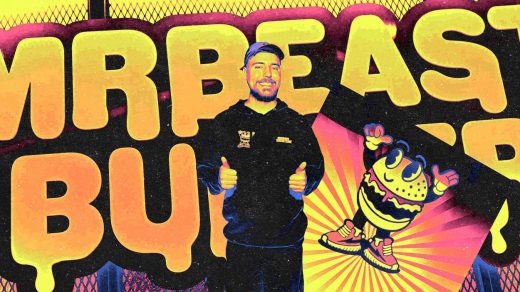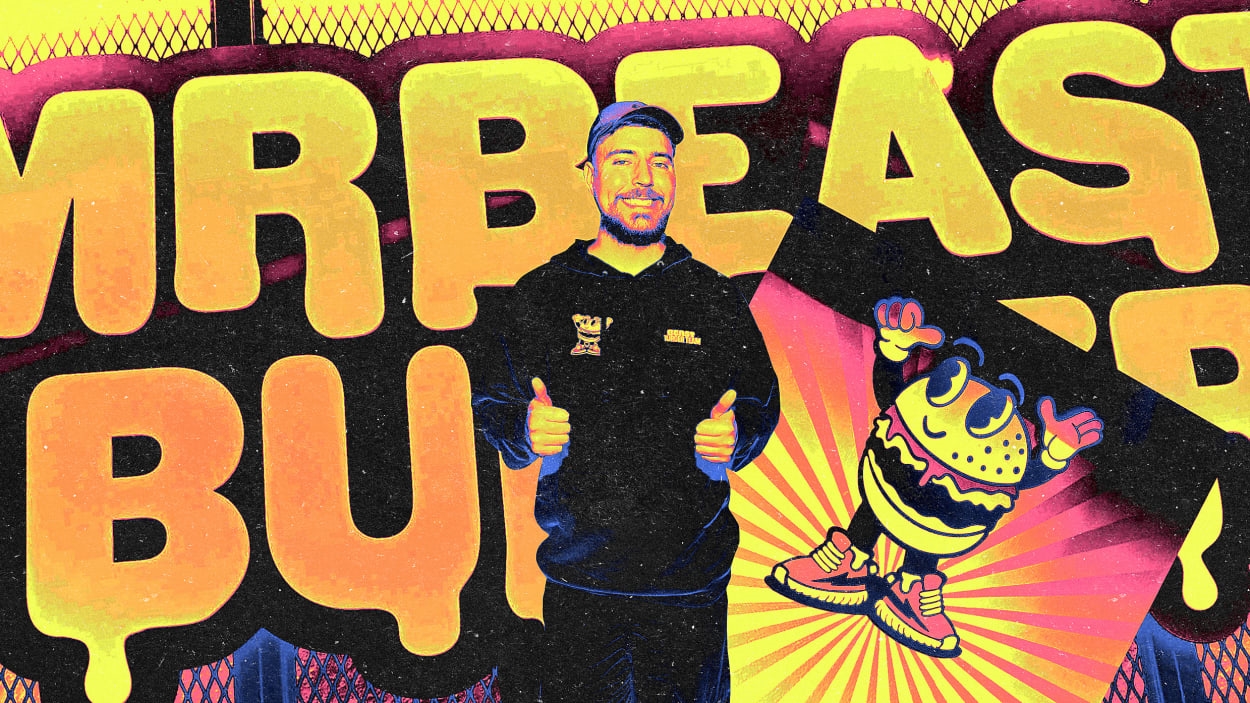Why the MrBeast lawsuit mess isn’t the end of ghost kitchens
Branded is a weekly column devoted to the intersection of marketing, business, design, and culture.
In the brief history of the ghost kitchen trend, the alliance between YouTube star MrBeast and Florida-based company Virtual Dining Concepts on the fast-growing MrBeast Burger seemed like one of the industry’s marquee success stories, with reported sales of $100 million. That is, right up until this month, when the two exchanged harshly worded lawsuits that may unravel their partnership. If this much-celebrated partnership is falling apart, does that signal that ghost kitchens are cooked?
Not according to IHOP, which has quietly become one of the largest ghost kitchen players through its 1,000 locations, launching four delivery-only brands since last year, with more in the works. “IHOP remains bullish on virtual brands,” John Peyton, CEO of IHOP parent Dine Brands, said in a recent earnings call. “We’ll continue to build IHOP’s portfolio of virtual brands,” he added later, promising “several exciting brands coming very soon.”
The simultaneous backtracking of MrBeast Burger and double-down of IHOP may not be as contradictory as they appear. After breakneck pandemic-era growth, fueled by the runaway proliferation of delivery services, ghost kitchens are settling into a new phase. A shakeout seems likely—but a recipe for long-term viability may be taking shape, too.
The MrBeast pairing with Virtual Dining Concepts highlighted a key ingredient: latching a menu to a brand with an established audience—something that transcended the generic-sounding “restaurants” with search-optimized names that defined the concept’s initial boom. (Uber Eats and other delivery apps have since begun to purge those when a single kitchen operates with a slew of names that ultimately clutter up app menus.) VDC has worked with several celebrity partners, but its deal with MrBeast—real name, Jimmy Donaldson—was a breakthrough, leveraging his massive YouTube following of more than 175 million subscribers to seemingly launch a national takeout/delivery burger chain overnight. The avalanche of press hype that resulted didn’t hurt.
But of course, a single not-so-secret ingredient isn’t enough. A successful recipe needs a solid base. And that’s at the center of the MrBeast/VDC meltdown. If it was up to Donaldson to draw customers, it was VDC’s job to coordinate the kitchen infrastructure to satisfyingly feed them. That’s no simple feat, involving an estimated 1,700 kitchens (including several regional Italian chains). Donaldson’s lawsuit essentially alleges that the resulting quality has become uneven—or worse. That, the lawsuit says, has sparked “thousands” of negative online reviews and comments. “As a result,” it says, “MrBeast Burger has been regarded as a misleading, poor reflection of the MrBeast brand that provides low-quality products to customers that are delivered late, in unbranded packaging, fail to include the ordered items, and in some instances, were inedible.”
VDC has responded by suing Donaldson right back, countering that he has misleadingly disparaged its business, and is in breach of contract. Donaldson’s complaints, the suit says, are designed to “pressure” VDC to “sell all or a material portion of MrBeast Burger to him.” (Donaldson’s suit claims he has received “no profit share” from MrBeast Burger despite its evident success.)
Setting aside the specific legal wrangling, the broad outline of the dispute suggests some tweaking of the ghost kitchen template — which brings us back to IHOP. While Dine CEO Peyton talked up the potential of ghost kitchens in that earnings call, he positioned their impact carefully: Virtual brands “allow us to leverage our scale and kitchen space to add incremental sales.” In other words, there are times when 1,000 or so IHOP kitchens are less busy, and fulfilling orders for delivery-only brands can make those kitchens more productive. “Our target windows are dinner and late-night hours,” he said. That guides menu decisions and brand positioning.
The company’s first two delivery brands, launched last year, were Thrilled Cheese (specializing in grilled cheese sandwiches) and Super Mega Dilla (quesadillas), both in partnership with virtual-dining company Nextbite. This year, again with Nextbite, it launched TenderFix by Noah Schnapp—the actor who plays Will Byers on Netflix’s Stranger Things, and is apparently a fan of chicken sandwiches and plant-based chicken alternatives. The company’s latest offering is Pardon My Cheesesteak, in conjunction with sports podcast Pardon My Take and, as it happens, Virtual Dining Concepts.
That late-night-and-dinner-time emphasis may work particularly well for breakfast-heavy IHOP; it’s notable that Dine’s other big brand, Applebee’s, has actually dialed back its wing-focused ghost kitchen-spinoff experiment.
But Peyton told Restaurant Dive that two more virtual brands connected to IHOP kitchens will launch soon. (Dine did not respond to an email seeking further details.) Virtual brands, he added, “only work when you have a business model that complements them.” In this case, maybe that means creating a successful side is better than an ambitious main course that isn’t fully baked.
(13)



